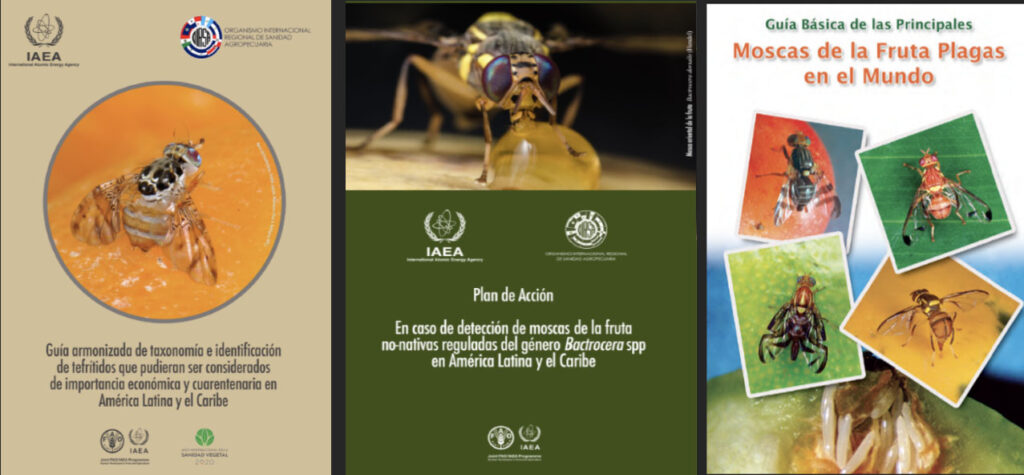Musaceae – Fusarium Tropical Race 4
In the face of the threat of introduction of banana wilt caused by Fusarium oxysporum f. sp. cubense Tropical Race 4 (Foc TR4), OIRSA has supported its member countries in implementing exclusion and prevention measures, which has prevented the region from reporting this pest to date, being considered free of it. This allows the productive sectors to maintain their levels of production and exportation.
It is worth mentioning that there are updated documents such as the regional pest risk analysis, technical data sheet, recommendations for exclusion measures to be applied at airports and ports, and action and contingency plans. Additionally, diagnostic capacities are being strengthened, along with rapid response capabilities in case of potential outbreaks through national drills. Furthermore, a phytosanitary command is supported by an expert group that enables swift advice in case of emergencies or phytosanitary emergencies declared by a country.

Currently, two international cooperation projects are underway with TaiwanICDF and the IDB, which have increased capacities in the prevention and integrated management of the main banana pest. This pest is currently present in Colombia, Peru, and Venezuela.
The projects currently managed and being implemented for Fusarium Tropical Race 4 (Foc TR4) are:
-
- Regional Project for the Prevention and Control of Fusarium Tropical Race 4 in Bananas in Central America between the Government of the Republic of China (Taiwan) and the International Regional Organization for Agricultural Health (OIRSA), which among its objectives are:
-
-
-
- Strengthening diagnostic capabilities for Foc TR4 and other quarantine pests.
- Strengthening regional capacities for Foc TR4 prevention: improving the effectiveness of the Foc R4T monitoring system through satellite imagery, biosecurity protocols for Fusarium TR4, and emergency response plans.
- Introduction and validation of Fusarium TR4 -resistant varieties from Taiwan: Measures are included to assist Central American countries in establishing certification and diagnostic capabilities for healthy plants.
-
-
Fruit flies
The National Plant Protection Organizations (NPPOs) of OIRSA maintain and have improved the status of pest-free countries, sites, or areas free of the Mediterranean fruit fly, Ceratitis capitata specifically in Guatemala, a new area was recognized for the export of peaches to specific regions of Mexico. Additionally, this program collaborates in developing and publishing specialized technical documents based on an agreement with the International Atomic Energy Agency for dissemination to ministries of agriculture. It also conducts communication campaigns and, when necessary, provides technical support for eradicating outbreaks, as was the case in the Dominican Republic in 2015, which was considered an international example due to the timely achievement of the objective of eradicating this pest.


